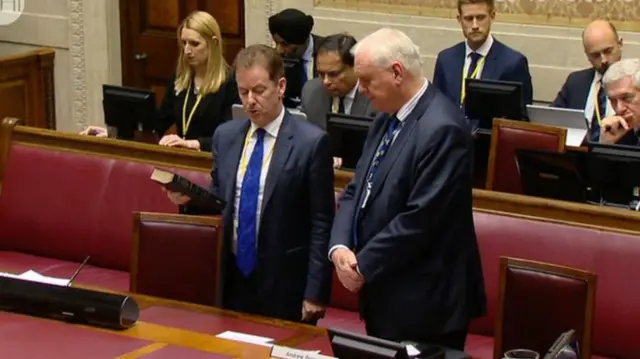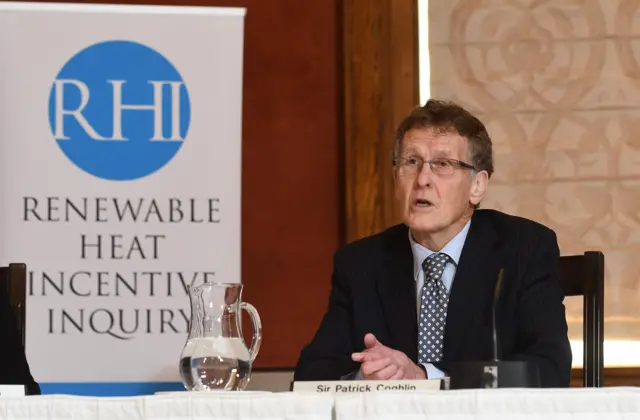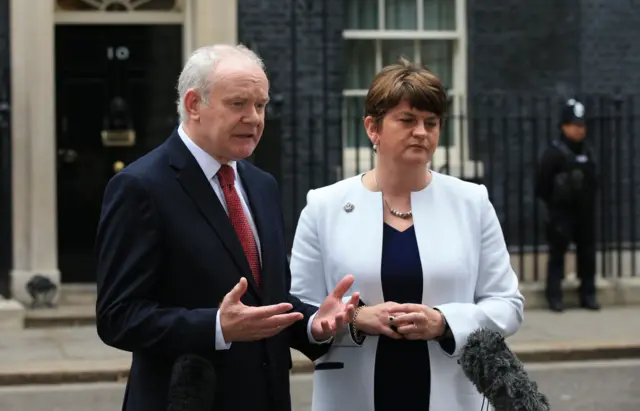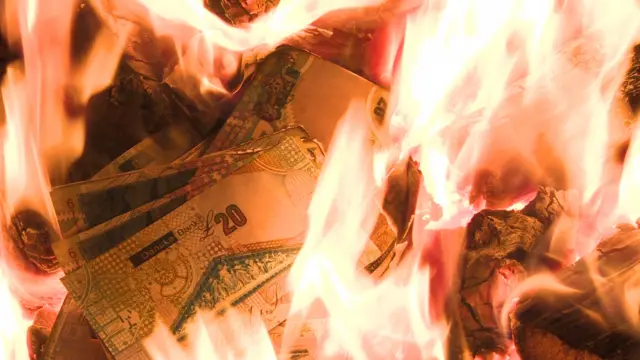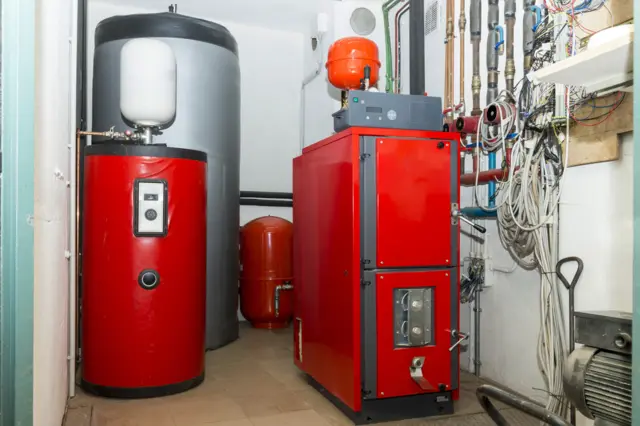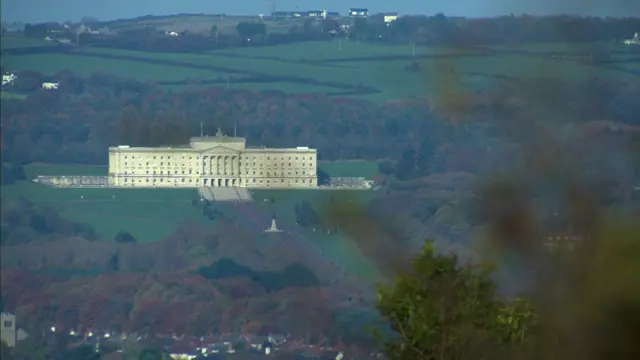'Seemed pretty logical for us to run RHI scheme'published at 10:18 BST 5 October 2018
Ofgem had been administering the similar RHI scheme that was running in Great Britain before it took on the operation of the RHI scheme in Northern Ireland.
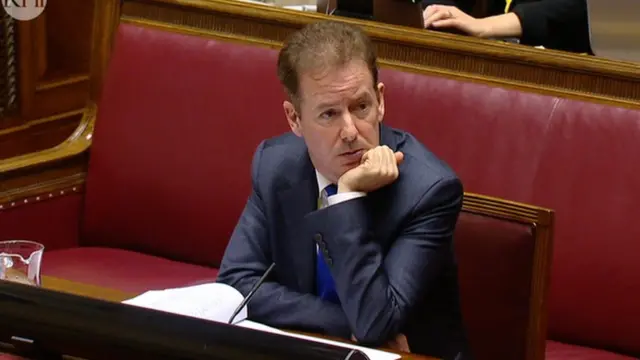 Image source, RHI Inquiry
Image source, RHI InquiryIt therefore had the necessary experience and IT systems in place to handle the Northern Ireland initiative - or so it seemed - and it was approached by the Stormont department that was setting it up.
Mr Nolan says it "seemed pretty logical" for the Department of Enterprise, Trade and Investment (DETI) to ask Ofgem to run its scheme.
